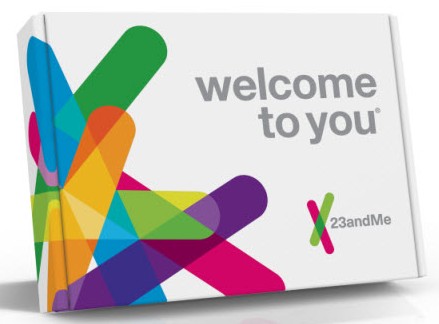23andMe granted authorization by FDA to market first direct-to-consumer genetic test
February 23, 2015
23andMe, Inc., a personal genetics company formerly forced by the FDA to halt sales of its direct-to-consumer Personal Genome Service, has now been granted authority by the FDA to market the first direct-to-consumer genetic test under a regulatory classification for novel devices.
The new permission is limited to Bloom Syndrome and autosomal recessive disorders.
The approval came in under the FDA’s “de novo classification option” for “novel devices of low to moderate risk that are not substantially equivalent to an already legally marketed device,” explained 23andMe in a statement.
The FDA is also reclassifying autosomal recessive carrier screening tests, with the intention to exempt such carrier tests from FDA premarket review.
More work to do first
However, 23andMe will not immediately begin returning Bloom syndrome Carrier Status test results or other health results to customers until it completes the regulatory process for additional test reports and can offer a more comprehensive product offering, according to the statement.
“This is a major milestone for our company and for consumers who want direct access to genetic testing,” said Anne Wojcicki, 23andMe CEO and co-founder. “We have more work to do, but we remain committed to pursuing a regulatory path for additional tests and bringing the health reports back to the US market.”
Bloom syndrome is a rare disorder that is more common in people of Central and Eastern European, or Ashkenazi, Jewish background. One in 107 people of Ashkenazi Jewish descent is a carrier for Bloom syndrome. The disorder is characterized by short stature, sun-sensitive skin changes, and an increased risk of cancer. According to the National Institute of Health, this condition is inherited in an autosomal recessive pattern, which means both copies of the gene in each cell have mutations.
23andMe says it has more than 850,000 customers worldwide with more than 80 percent consented to participate in research, including learning about your ancestry, which is not covered under FDA regulations.
Abstract of Carrier screening in individuals of Ashkenazi Jewish descent
Disclaimer: This guideline is designed primarily as an educational resource for medical geneticists and other health care providers to help them provide quality medical genetic services. Adherence to this guideline does not necessarily assure a successful medical outcome. This guideline should not be considered inclusive of all proper procedures and tests or exclusive of other procedures and tests that are reasonably directed to obtaining the same results. In determining the propriety of any specific procedure or test, the geneticist should apply his or her own professional judgment to the specific clinical circumstances presented by the individual patient or specimen. It may be prudent, however, to document in the patient’s record the rationale for any significant deviation from this guideline.
